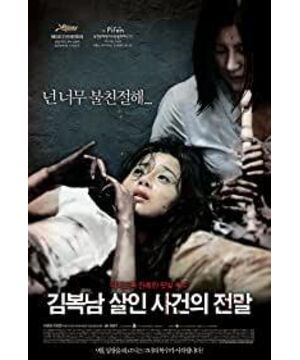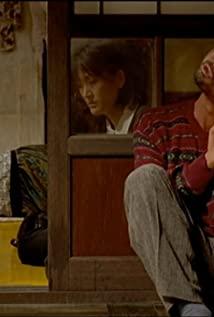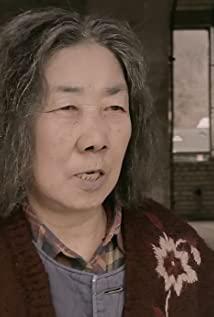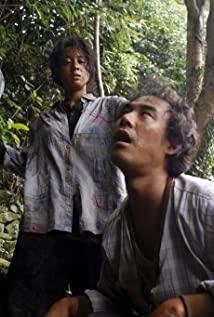At the beginning of the film, a hard-working woman named Zheng Haiyuan in a city is in a typical state of being on the verge of collapse. Faced with the violence in front of her, she is afraid to prove her. She is under great pressure and has a bad temper. Fight with her. For this reason, without the boss asking her to take a vacation, she should have a good rest. Indeed, the pressure of urban work is often confusing, and the idea of “escape from Beijing, Shanghai, Guangzhou” and the city’s pressure is by no means a Chinese characteristic. Under this idea, there are only a few who really escape from the city, and more people hope to stay away from the city. For the long vacation, relieve the pressure and relax. At this point in the film, Zheng Haiyuan seems to be the protagonist, but in fact, she is just a "witness" of the main story behind and a "receiver" of the effects of the event. This is a common method of film narration, which is to use a third-party perspective, but use the witness’s experience and participation to contrast and record, creating the effect of the first perspective. While the plot is happening, the witness’s feelings and The change also bears the role of the bearer of the plot, and it is more substantiated to express the emotional impact caused by the conflict of the drama. When Zheng Haewon traveled to the island where she lived when she was a child, and when she met her childhood playmates, she brought out the true protagonist of the film, Jin Funan. In her days on the island, Zheng Haewon also witnessed the whole story of a violent incident.
Compared with Zheng Haewon, who is anxious and painful in his heart but has a glamorous appearance, Jin Funan has a dark skin and a haggard face. He can hardly imagine that she and Zheng Haewon grew up in the same environment. This is the case for the process of urbanization. Although it does not necessarily produce a strong duality, it is bound to allow villagers from the same environment to move toward different encounters and states. The biggest difference between Jin Funan and Zheng Haewon is not in appearance, but also in life. Jin Funan, who has already married, did not get the happiness he wanted. It was more about family members and even the entire island of violence. The film presents Jin Funan’s tragic life with typical violent episodes, with physical violence such as punches and kicks; brutal and casual sexual injuries; casual insults; mental torture; Jin Funan’s husband is even more in front of her. The woman went home, screamed wildly inside the house, and outside the house was Jin Funan eating numbly. This scene has written a vivid and tragic footnote to Jin Funan's life. This is an unfortunate woman, a woman who is unfair to others, and a woman who can't see the future. As the saying goes, poor people must be hateful, but from Jin Funan’s body, it’s hard to tell that she has a reasonable hope of resistance. There are just a few people on the island, an absolutely stable small society of acquaintances, and the most Controlling men have become targets of violence against them, and although the older women on the island sympathize with them, they are also conspirators with the abusers. From real cases, we often find that the victim often becomes the accomplice of the perpetrator, attacking the next weaker victim. Those older women may have been victims of patriarchy, but they still shelter those who condone violence. continue. Therefore, Jin Funan only needs foreign aid, but there is no hope. The ferry owners who can leave the island have a closer relationship with the men on the island. Later events will see that legal persons outside the island can also be bought off by the men on the island. What makes Jin Funan most desperate is the despair of his daughter and the indifference of his former playmates.
Many details of the film are shown. In Jin Funan's eyes, Zheng Haewon is the incarnation of success. Her fair skin, seemingly good social status, and freedom of coming and going make Jin Funan envy. Therefore, when she found out that her lustful husband had begun to extend the claws to her daughter, she couldn’t bear it. The child was often the bottom line of a mother’s patience. She fought hard, but failed in another conspiracy of thugs and cowards. The daughter's complete failure, and Zheng Haewon's cowardly performance once again made Jin Funan, who had experienced this betrayal when she was a girl, completely desperate. The more miserable Jin Funan was, the more angry the audience became. When Jin Funan was victimized by violence again and again, the hatred in her heart also accumulated little by little, and the audience's awareness of the rationality of violence against violence became stronger and stronger, until the end Transformed into a kind of "expectation" of "this group of unhappy beasts", such successful films with a tolerable violence outbreak have always mastered the appropriate rhythm at this rhythm, such as "Straw Dog". So, when the film was just right, Jin Funan broke out. First of all, she was "crazy", working alone, seeming to have become a brainless body, in fact, this is the transformation of her nemesis. Next, a series of bloody and hard violence scenes followed one after another, without giving you any breathing time continuously, sickle, tooth, dagger, all with flames of hatred, thrown at the abuser and accomplice. At this time, logic is no longer a problem. For example, why is Jin Funan suddenly so powerful, and why the perpetrator is so slow to react? The already unbearable audience watched their panic and shouted. However, this outbreak of violence is only a cycle of violence, leaving only the emptiness and tragedy of corpses all over the ground.
In my opinion, after the climax of the film, the plot of arranging Jin Funan’s outlying islands to go ashore to continue revenge is really superfluous. This adds another touch to the logic that originally had loopholes. Perhaps this is because the director wants her and witness Zheng Haewon to come. In-depth contact, and then express the shock that Zheng Haewon has suffered. Actually, no need. Zheng Haewon on the island has already shown her cowardice. Jin Funan has also shown the kindness and bravery of the girl on the island by protecting her again and again, and Jin Funan raised a sickle to the perpetrator in front of Zheng Haewon. , Has been enough to shock her soul. Zheng Haewon’s indifference to the violence suffered by someone he never knew in the film echoes the indifference on the island facing her former playmate who loved her. It is this indifference that allows the perpetrator to do whatever he wants, and the victim gradually falls into or destroys himself. , Or the desperate situation of death. "The Beginning and End of the Kim Funan Murder" adopts an extremely impactful, witness-substitution approach, allowing us to witness a woman facing an outbreak of violence. Her tragedy is not a personal tragedy, but a consciously or unconsciously formed" Social tragedy caused by violent groups. The only gratifying thing is that Zheng Haewon, a person who was in the event and free from the event, finally overcomes the inner fear after experiencing the fear of death, and has shown her own understanding with practical actions: breaking the violence The cycle is to start with no indulgence.
http://hi.baidu.com/doglovecat/blog/item/a869c213da17e03fdc54015c.html
View more about Kim Bok-nam salinsageonui jeonmal reviews











